Generators provide a vital power source during outages, emergencies, or for off-grid living.
With various options in fuel, propane generators stand out for their clean-burning properties and easy storage.
If you’re considering a propane generator, this article covers everything you need to know about how much propane does a generator use.
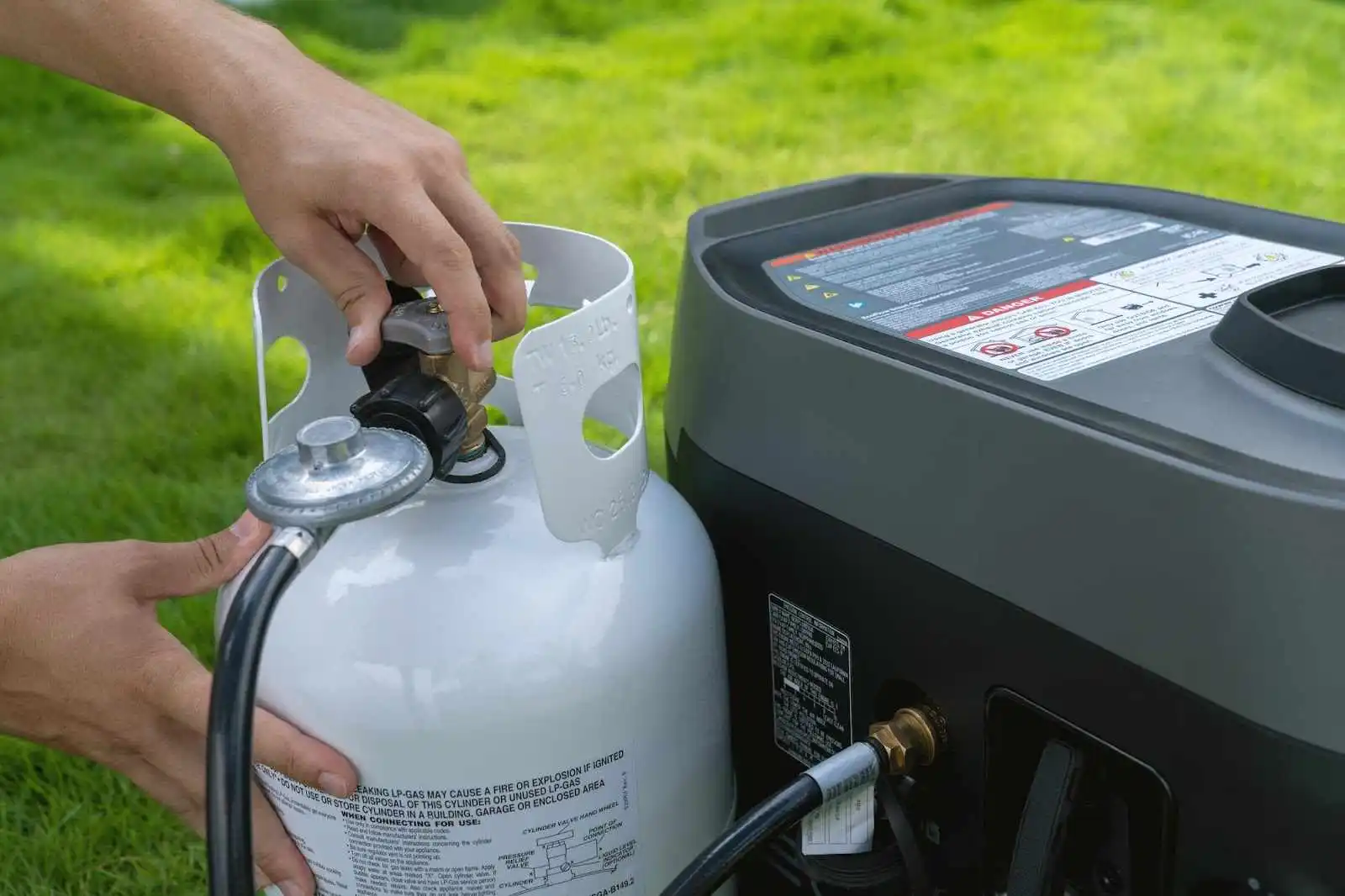
Understanding Propane as a Fuel Source
Propane, or liquefied petroleum gas (LPG), is a popular choice for generators. It burns clean, which means less wear on your engine and a smaller carbon footprint.
It’s also widely available and often less affected by market fluctuations compared to gasoline or diesel.
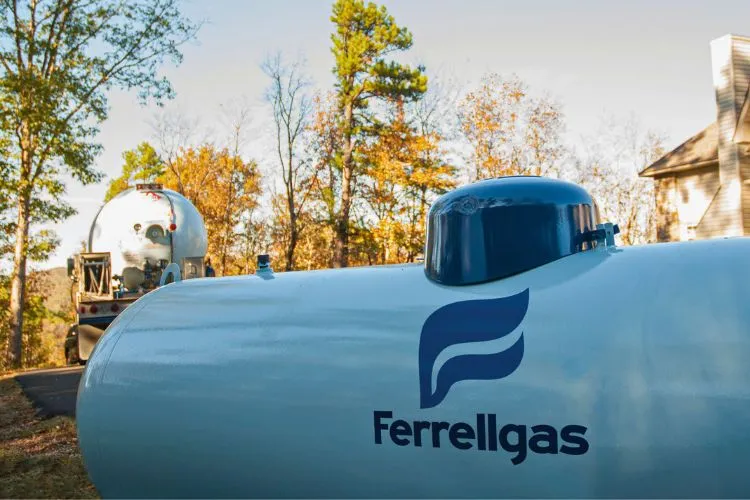
When pitted against other fuels, propane offers unique advantages. It’s more stable over time, which makes it ideal for infrequent use, such as in backup generators.
It’s known to run quieter than gasoline and can often prove to be more cost-efficient, depending on local prices.
How Much Propane Does a Generator Use?
To grasp how much propane a generator uses, you need to understand the factors at play.
Generator size and the power it generates, measured in kilowatts, directly affect propane consumption.
Larger, more powerful generators will use more fuel. The generator’s efficiency, how well it converts fuel into electricity, also plays a role.
Finally, environmental elements like cold temperatures can increase propane usage.
In terms of measurement, BTUs or British Thermal Units depict the energy contained in fuels.
When it comes to propane, its energy content is commonly referred to in gallons or pounds. One gallon of propane contains approximately 91,500 BTUs.
Estimating Propane Consumption
A general guideline to follow is that a generator will use between two and three pounds of propane per 1,000 watts of energy produced per hour.
To get a more precise estimate, you’ll need the specific consumption rate from the generator’s manufacturer, typically found in the owner’s manual.
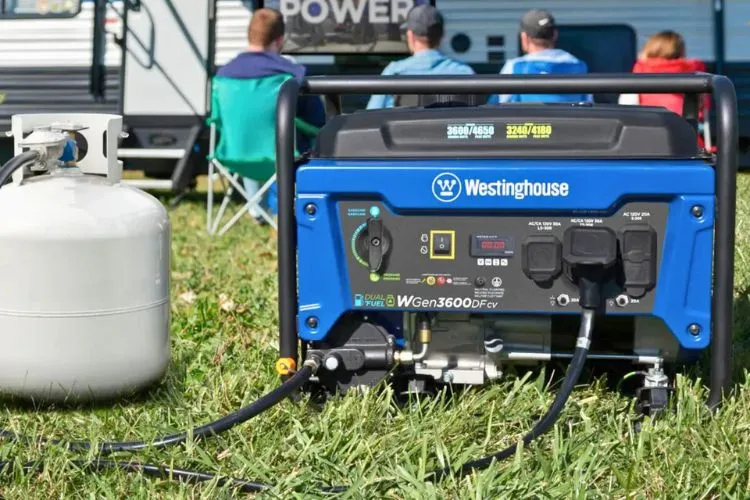
Let’s tackle an example. Say a residential user has a 5-kilowatt generator. If the manual states that the generator consumes 0.75 gallons of propane per hour at half load, a full day’s use (24 hours) at half load would require 18 gallons of propane.
Scaling the use to the needs will provide a clearer picture of propane requirements.
Pro Tips for Managing Propane Usage
Maintaining your generator is crucial for optimal performance. Regular checks and cleanings can prevent fuel wastage. Below are a few tips for managing propane usage:
- Choose a right-sized generator. A too-large generator will waste fuel; too small, and it’ll run continuously, using more propane over time.
- Invest in modern generators with “eco-mode” features which allow the engine to adjust its speed to the load, saving fuel.
- Keeping up with regular maintenance, such as air filter changes, can help the generator run more efficiently.
Real-life Considerations
User experiences can be incredibly insightful. Many find that a mid-size generator running on propane is more than enough for essential home needs during an outage. Keeping a close eye on the load can often lead to significant fuel savings.
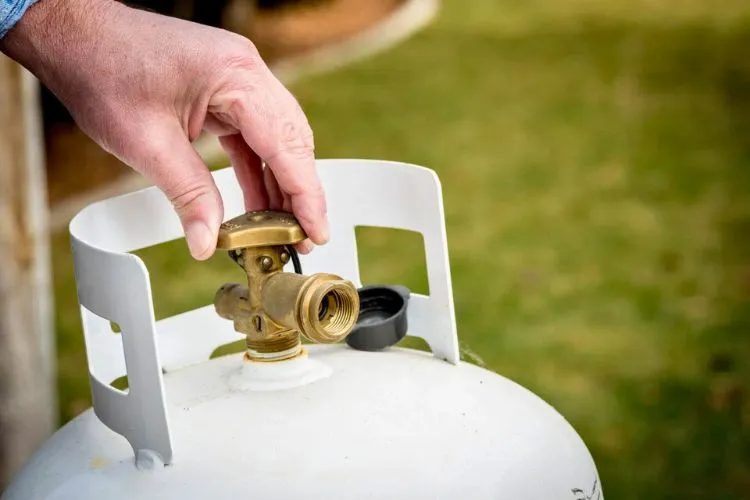
Industry experts suggest regular servicing and proper storage of propane for efficiency and safety. They also recommend getting acquainted with your particular model’s fuel consumption to avoid surprises.
You may also find useful: How To Reduce Generator Fuel Consumption in 7 Easy Steps
Safety Considerations for Using Propane Generators
Safety is paramount when operating propane generators. It’s crucial to store propane tanks properly, in a cool, well-ventilated area, away from living spaces and potential sources of ignition.
Carbon monoxide (CO) poisoning is a serious risk with any fuel-burning generator. Always operate propane generators outdoors, away from windows, doors, and vents to ensure adequate ventilation and prevent CO buildup inside homes or buildings.
Adhering to the manufacturer’s instructions for use, maintenance, and storage is essential for safe operation.
Regular inspections for leaks and damages, along with timely maintenance, can prevent accidents, ensuring a safe and reliable source of backup power.
Cost-Benefit Analysis of Propane Generators
Purchasing a propane generator involves upfront costs, which vary depending on size and model, typically ranging from a few hundred to several thousand dollars.
Installation costs can also be significant, requiring professional setup, particularly for standby models.
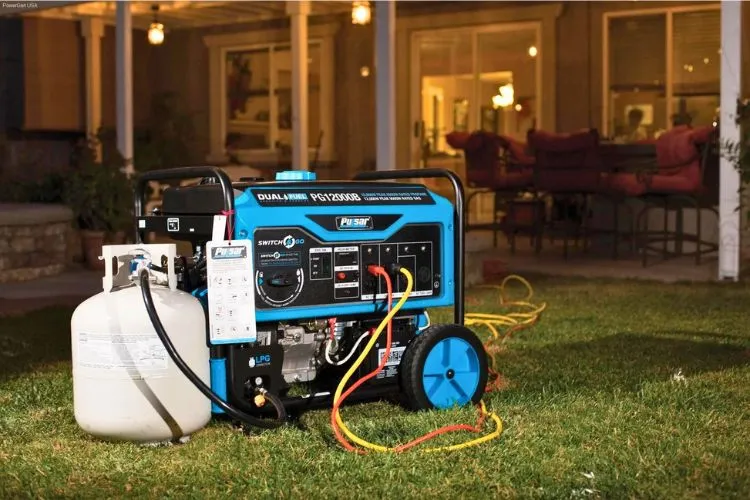
Operating costs depend on propane prices and generator efficiency, often proving more economical compared to gasoline due to propane’s longer shelf life and lower maintenance requirements.
The benefits of propane generators include superior reliability during outages, offering a dependable power source.
Propane burns cleaner than gasoline or diesel, resulting in lower emissions and potentially longer equipment lifespan, adding to its cost efficiency.
Additionally, the ease of storing propane and its availability during disasters make it a practical choice for emergency power, balancing the initial investment with considerable long-term savings and environmental benefits.
Frequently Asked Questions (FAQs)
How long can a generator run on a 20-pound propane tank?
This will depend on the generator size and load. A 20-pound tank holds approximately 4.7 gallons of propane. With our earlier example of a 5-kW generator at half load consuming 0.75 gallons per hour, a 20-pound tank would last roughly 6.25 hours.
Can external factors like weather affect propane consumption in generators?
Yes, extreme temperatures can influence propane usage. Colder weather may cause the generator to consume more fuel to produce the same amount of energy.
Is it cheaper to run a generator on propane or gasoline?
The cost can vary based on local fuel prices. However, propane often has the edge for stability in pricing and a longer shelf life, which may translate to savings in the long term.
What are the signs that my generator is not using propane efficiently?
Increased fuel consumption, decreased power output, and unusual engine behavior can be indicators that your generator isn’t running efficiently.
How often should I check and refill my propane tank when using it with a generator?
It’s best to monitor the usage rate based on your specific needs and generator model. Always have extra fuel on hand and check the levels before prolonged use.
Conclusion:
Understanding your propane generator’s fuel consumption helps maintain efficiency and preparedness.
Remember, the key to efficient utilization lies in selecting the right generator size, performing regular maintenance, and understanding the various factors that affect propane usage.
With these points in mind, you can ensure that your generator will serve you well when needed without excessive fuel costs.
